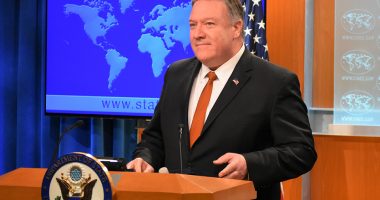BAKU — Azerbaijani President Ilham Aliyev signaled his country’s plans to buy more weapons from Russia after talks with his Russian counterpart Vladimir Putin held in Baku on Tuesday.
“There are periodical press reports on the volume of [Russian-Azerbaijani military] cooperation that do not always reflect the realities. I must say that as of today the volume of military-technical cooperation between Russia and Azerbaijan is measured at $4 billion and it tends to grow further,” news agencies quoted Aliyev as telling a joint news conference with Putin. He expressed confidence that military ties between the two countries will grow closer.
Aliyev referred to a recent revelation by the Russian press that Moscow has begun delivering around $1 billion worth of offensive weapons to Baku in accordance with defense contracts signed two years ago. The Azerbaijani military is reportedly due to receive, among other things, around 100 T-90 tanks and over a dozen Smerch multiple-launch rocket systems, one of the most destructive weapons of their kind. Russian government officials have effectively confirmed this information.
Citing an unnamed source close to Rosoboronexport, Russia’s state arms exporter, the Moscow daily “Vedomosti” said on Wednesday that the figure cited by Aliyev is “the sum of all contracts concluded and partly executed since 2010.” It said the two sides could cut new arms deals.
The $1 billion deal revealed by “Vedomosti” in June was preceded by other significant Russian arms sales to Armenia’s arch-foe. In particular, the Russians supplied Azerbaijan in 2010 with two batteries of state-of-the-art S-300 air-defense systems worth hundreds of millions of dollars each.
Moscow also reportedly agreed in 2010 to sell 24 Mi-35 helicopter gunships for a combined $360 million. According to the Azerbaijani media, half of them were delivered to Azerbaijan’s armed forces in 2011 and 2012.
“Nezavisimaya Gazeta,” another major Russian daily, reported in January that Putin cancelled the planned delivery of a third S-300 division to Baku after the latter refused to extend Moscow’s lease on a Soviet-era radar station in northern Azerbaijan late last year. APA, a government-linked Azerbaijani news agency, said in April that the Kremlin has also refused to sell dozens of modern warplanes sought by the Azerbaijani government.
Russia already faced strong criticism from Armenian political and media circles after the recent revelation of its fresh arms supplies to Baku. Both Russian and Armenian government officials downplayed those supplies, saying that they will not undermine the military balance in the Karabakh conflict. They also implied that Russian military assistance to Armenia, Russia’s main regional ally, will continue unabated.










